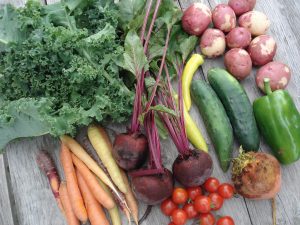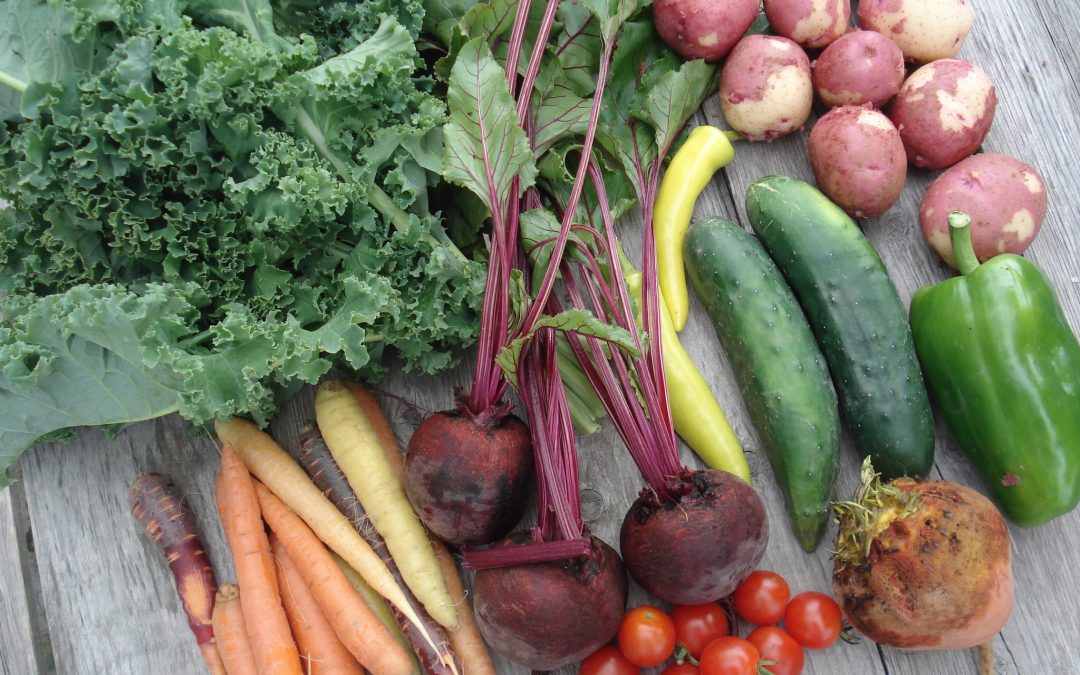Did you know that about 50% of food that is produced in the world is wasted?  Food waste is created at all stages of production. North American households throw out about 30% of the food it buys. So this means as consumers, we can make a huge difference if we make an effort to not waste food.
Food waste is created at all stages of production. North American households throw out about 30% of the food it buys. So this means as consumers, we can make a huge difference if we make an effort to not waste food.
When we waste food, we are also wasting precious resources since food production requires a lot of water and energy, not to mention land. For example, the production of 1 kg of beef requires over 15,000 litres of water and 1 kg of apples needs 822 litres (source: Institution of Mechanical Engineers’ report Global Food Waste Not, Want Not). Most food travels many kilometres to get to our plate, so the fuel use for transportation is also wasted if we end up chucking food in the garbage.
There are many things that you can do at home to prevent food wastes and here are just a few ideas.
Plan your meals
When you plan your meals, you can make a list of the ingredients you need to buy and that way you don’t end up with food items that you might not be able to eat in time before it goes bad or you just might end up forgetting about that artichoke dip you bought on an impulse.
Check that fridge
To extend the life of food, make sure your fridge temperature is ideal, between 0 to 5 degrees Celsius. Also, know what’s in your fridge by cleaning it regularly and plan to use up those leftovers. You can add leftover rice or pasta in soup, for example.
Freeze your food
If you’ve got too many leftovers, consider freezing them. This way, you will have a meal for next time!
Rinse your food containers clean
When you open that can of tomato paste, clean it off with a little bit of water and add it to your recipe. Or if you can’t get the last bit of dressing out of that bottle, add vinegar and shake the bottle so that you can get the rest out!




Recent Comments